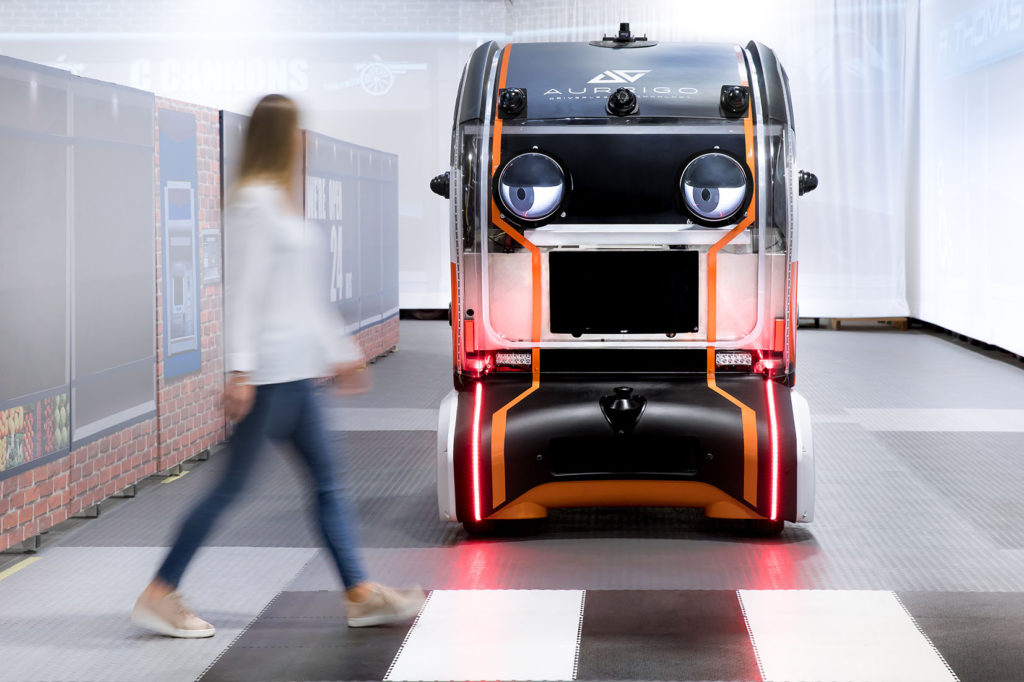Psychologists help with design of future technology vehicles.
Aurrigo has joined forces with Jaguar Land Rover to fit ‘virtual eyes’ to its autonomous pods to understand how humans will trust self-driving vehicles.
The friendly-faced ‘eye pods’ have a vital job: helping work out how much information future self-driving cars should share with users or pedestrians to ensure that people trust the technology. As part of the engineering project, JLR has enlisted the help of a team of cognitive psychologists to better understand how vehicle behaviour affects human confidence in new technology.
The intelligent pods run autonomously on a fabricated street scene at Aurrigo’s Urban Driving Laboratory in Coventry, while the behaviour of pedestrians is analysed as they wait to cross the road.
The ‘eyes’ have been devised by a team of advanced engineers, working in Jaguar Land Rover’s Future Mobility division. The pods seek out the pedestrian – appearing to ‘look’ directly at them – signalling to road users that it has identified them, and intends to take avoiding action. Engineers record trust levels in the person before and after the pod makes ‘eye contact’ to find out whether it generates sufficient confidence that it would stop for them.
David Keene, CEO of Aurrigo, commented: “Safety is at the heart of our autonomous technology and, our close working relationship with JLR, meant we could quickly accommodate ‘virtual eyes’ on to a number of our pods to facilitate this important study.
“The valuable information will be used as part of the UK Autodrive programme and will also shape future developments in how we bring self-driving vehicles on to the pavements, streets and roads of the UK and overseas.”
Pete Bennett, Future Mobility Research Manager at Jaguar Land Rover, added: “It’s second-nature to glance at the driver of the approaching vehicle before stepping into the road. Understanding how this translates in tomorrow’s more automated world is important. We want to know if it is beneficial to provide humans with information about a vehicle’s intentions or whether simply letting a pedestrian know it has been recognised is enough to improve confidence.”
The trials are part of a wider study exploring how future connected and autonomous vehicles can replicate human behaviour and reactions when driving. As part of the study, more than 500 test subjects have been studied interacting with the self-driving Aurrigo pods.
